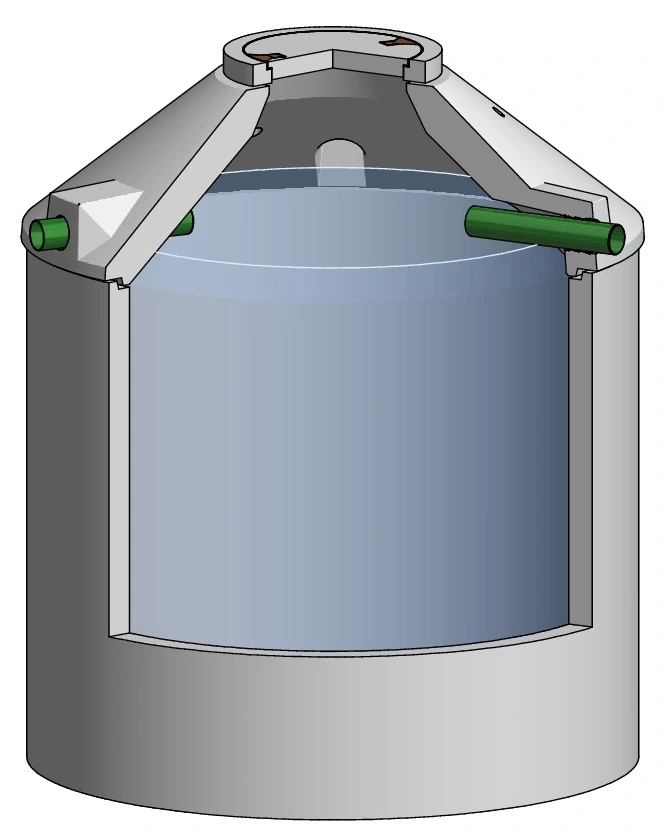Obligations and regulations relating to cisterns
Anyone planning or already using a cistern at home soon comes up against the question: Are there any regulations for cisterns and their use? Just thinking about official regulations, standards and technical requirements makes it clear that there is more to consider than just the installation. This is where an exciting topic begins, which not only plays a central role for your home, but also for the environment, drinking water protection and long-term costs. Stay tuned, because the legal framework and practical obligations are crucial in order to act in a legally compliant and efficient manner.
What owners need to know
In many regions, local authorities stipulate the installation of cisterns in order to utilise rainwater in a controlled manner. The legal situation is not standardised nationwide, but differs depending on the federal state and local authority. These regulations have a clear objective. They are intended to promote the responsible use of water resources and at the same time relieve the burden on the sewerage system during heavy rainfall. Anyone who understands the importance of the cistern quickly realises that it is not just a technical measure, but an important contribution to sustainable water use.
At the same time, the existing regulations also offer opportunities. Subsidy programmes can provide financial support for the purchase of a system and make integration into modern building concepts even more attractive. The cistern obligation is therefore not only an obligation, but also an incentive to implement sustainable solutions for homes, gardens and businesses. Especially when the function of the cistern is considered in a wider context, it becomes clear that owners can benefit from sustainable concepts, both ecologically and economically.
Reasons for the introduction of mandatory cisterns
High levels of precipitation pose a growing risk, especially in densely populated areas, as the risk of flooding increases significantly. A cistern for rainwater acts like a buffer here, temporarily storing water and thus significantly relieving the sewer network. At the same time, owners with such a solution make an important contribution to flood protection, as large quantities of rainwater are not discharged into the sewerage system in an uncontrolled manner. Another advantage is that the use of rainwater ecologically offsets the sealing of surfaces.
This noticeably reduces dependence on expensive drinking water, which is an economic advantage for homeowners in the long term, especially in times of rising prices.
Furthermore, by introducing an obligation, local authorities are promoting a sustainable framework for climate adaptation strategies. The conscious reuse of rainwater reduces drinking water consumption, conserves natural resources and helps to adapt to increasingly extreme weather events. This makes it clear that the cistern obligation not only serves to fulfil legal requirements, but is also an effective instrument for greater sustainability in the home, garden and business

Subsidies and financial benefits
Many cities support the installation of a rainwater system with attractive subsidies, which significantly reduce the investment costs. Subsidising a cistern ensures that the purchase pays for itself after just a few years through savings. In addition, tax advantages can arise if you claim for tradesmen's services during installation. In the long term, lower wastewater charges also have a positive effect on the household budget, as less water ends up in the sewerage system.
Having your own cistern in the garden also offers you protection against rising drinking water prices and increases your independence. While low-cost systems are often associated with restrictions, a high-quality solution pays for itself more quickly and amortises particularly efficiently thanks to the long-term savings. This allows you to combine ecological responsibility with clear financial benefits for both private households and commercial users.

The regulations for cistern owners
Anyone who operates a water cistern must adhere to certain requirements to ensure that the rainwater is utilised properly. These include regular maintenance as well as the professional installation and inspection of filters and overflows. Building authorities may also require the submission of detailed plans for new buildings or renovations. The strict separation of drinking and process water is particularly important to ensure that water withdrawal from the cistern has no impact on the public supply.
Competent advice from experts such as WISY helps you to fulfil all legal requirements and at the same time benefit from sustainable advantages, both for your property and for the responsible use of valuable resources.
Legal differences in Germany
The legal framework for the construction and operation of rainwater systems is interpreted differently in the individual federal states. In some regions, the installation obligation only applies to new buildings, while other federal states also include existing buildings. The requirements are particularly strict in urban areas with a high degree of density , as the risk of overloading the sewer network is significantly greater there than in rural regions.
There are also municipalities that combine the obligation with additional incentives such as funding programmes or tax breaks. However, owners must be aware that the construction of a system is often subject to authorisation and therefore requires prior consultation with the relevant building authority. It is only possible to ensure that all legal requirements are met by closely examining the municipal statutes.
In addition to the requirements under building law, there are also other important differences that owners should be aware of:
- Financial aspects such as wastewater costs and rainwater charges
- Risk of penalties for non-registered cisterns
- Regional regulations that must be strictly adhered to
- Importance of professional planning and expert advice in order to act in a legally compliant manner
- Long-term ecological and economic benefits through correct implementation
Technical requirements for cisterns
The technical requirements for a system depend, among other things, on the roof area and local regulations, which is why the size of the cistern must be carefully calculated. The choice of suitable materials that are robust, durable and safe for drinking water is equally important. Modern filter technology ensures that contamination is reliably trapped, significantly extending the service life of the entire system.
Quality and planning also play a key role when installing a cistern. Pumps and control systems ensure a constant supply of rainwater and make utilisation convenient and efficient. Low-maintenance systems also save time and reduce running costs. To ensure that the system works safely in the long term, overflow, infiltration and emergency drains must be carefully planned, a task that is made considerably easier by professional advice and high-quality technology.
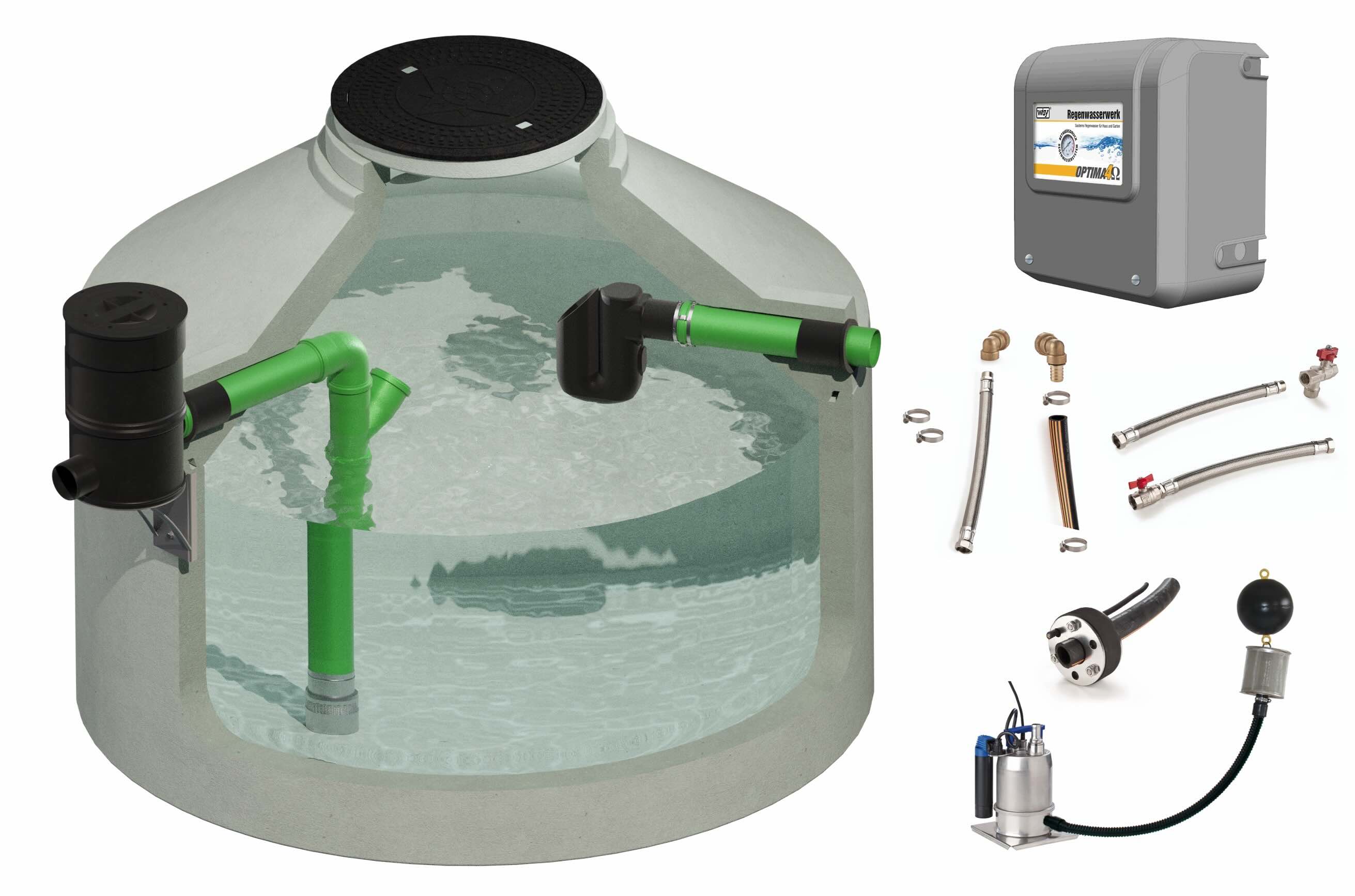
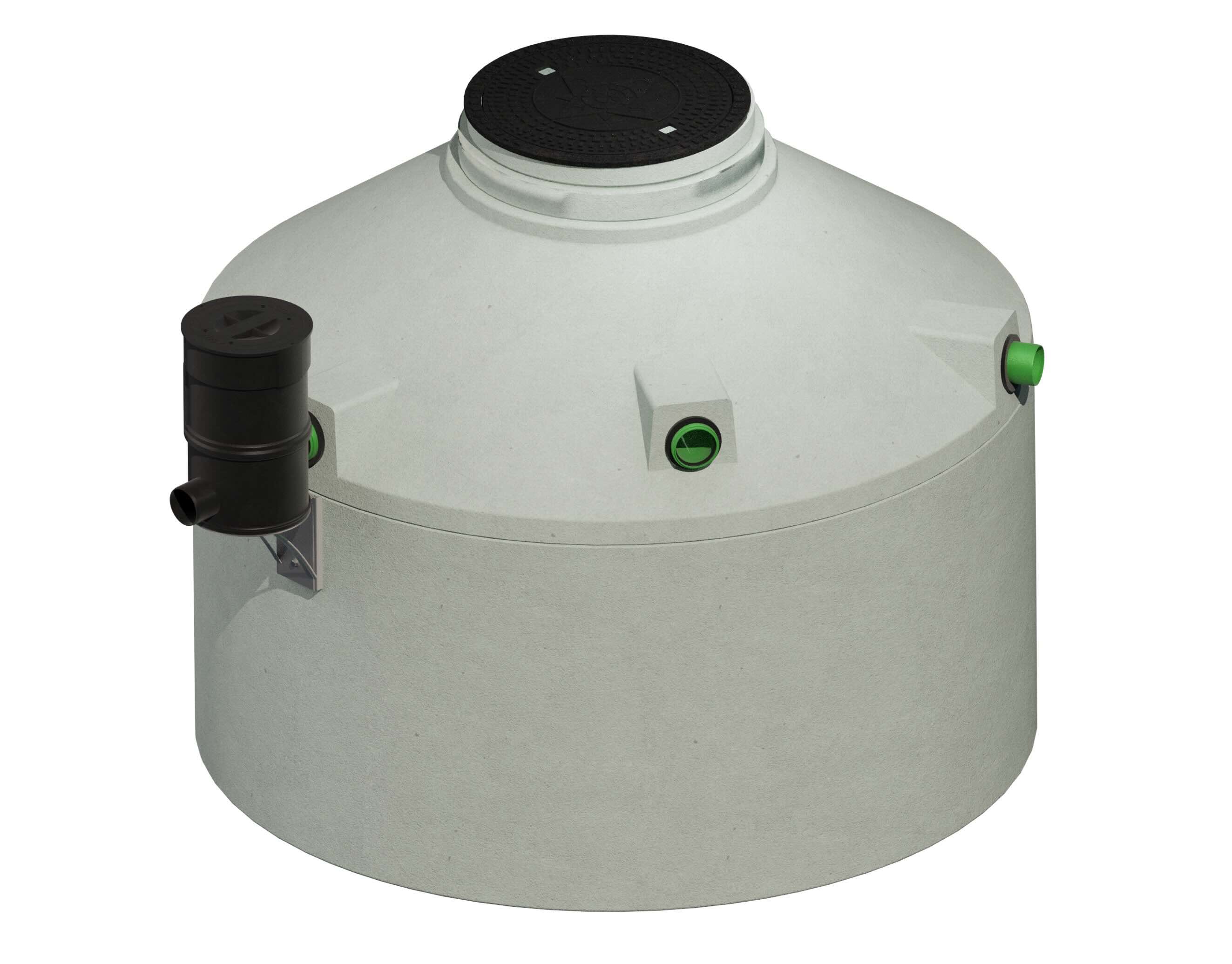
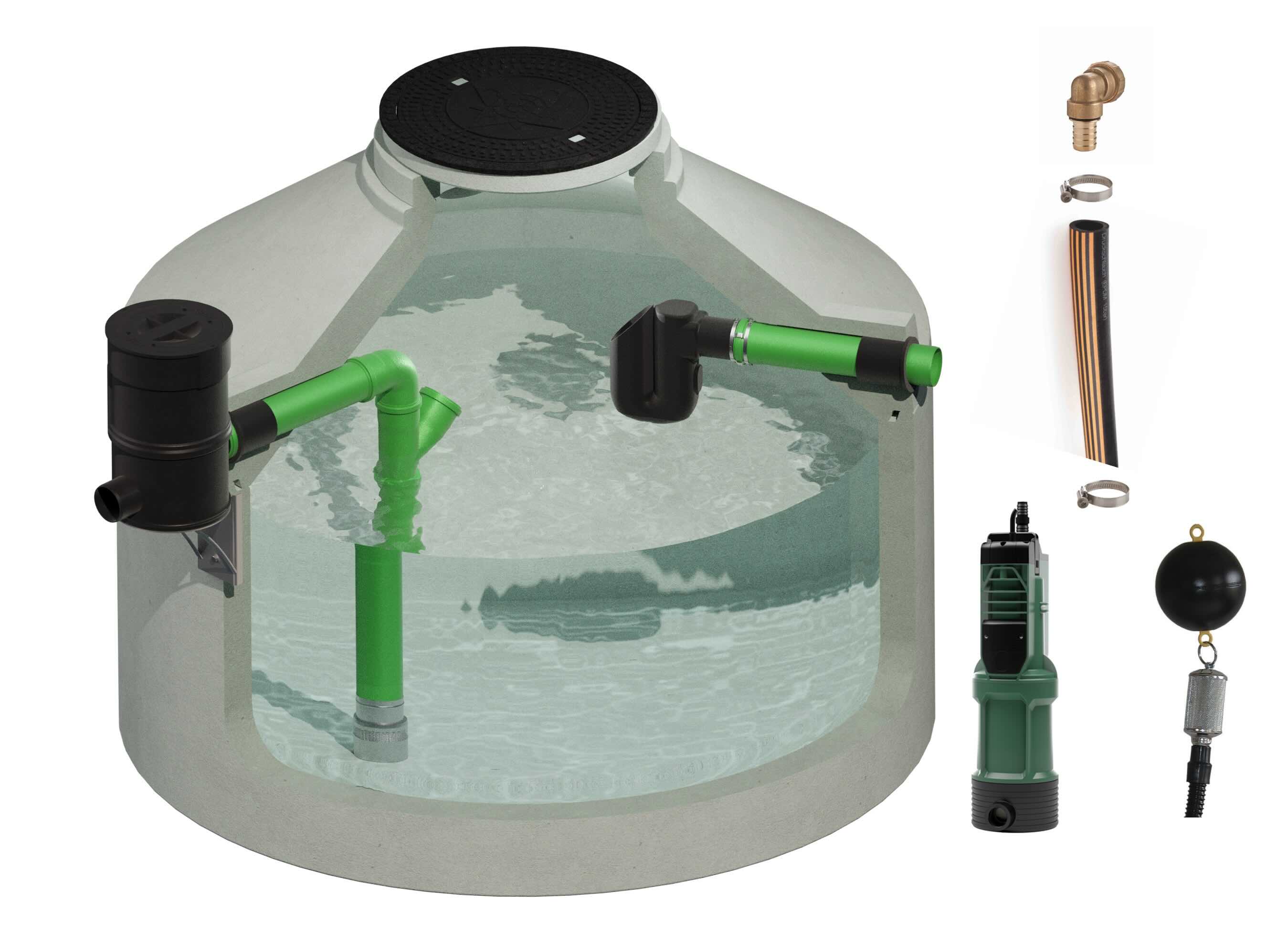



Rainwater filter for clean irrigation water
In many large cities, cisterns are integrated into new construction projects from the outset in order to fulfil legal requirements. Commercial areas are often equipped with large-volume storage systems, while industrial companies also use the systems for cooling water or process water. Residential complexes are also increasingly relying on centralised storage tanks with modern control technology that efficiently regulate consumption and thus make everyday life easier for residents.
These examples show that the legal obligation need not be seen as a burden, but as an opportunity for innovative and sustainable solutions. Even a water cistern in the garden can now be sensibly combined with smart home systems, allowing rainwater utilisation to be conveniently integrated into everyday life. This makes the obligation an engine for future-orientated concepts that combine ecological responsibility with practical and economic benefits.
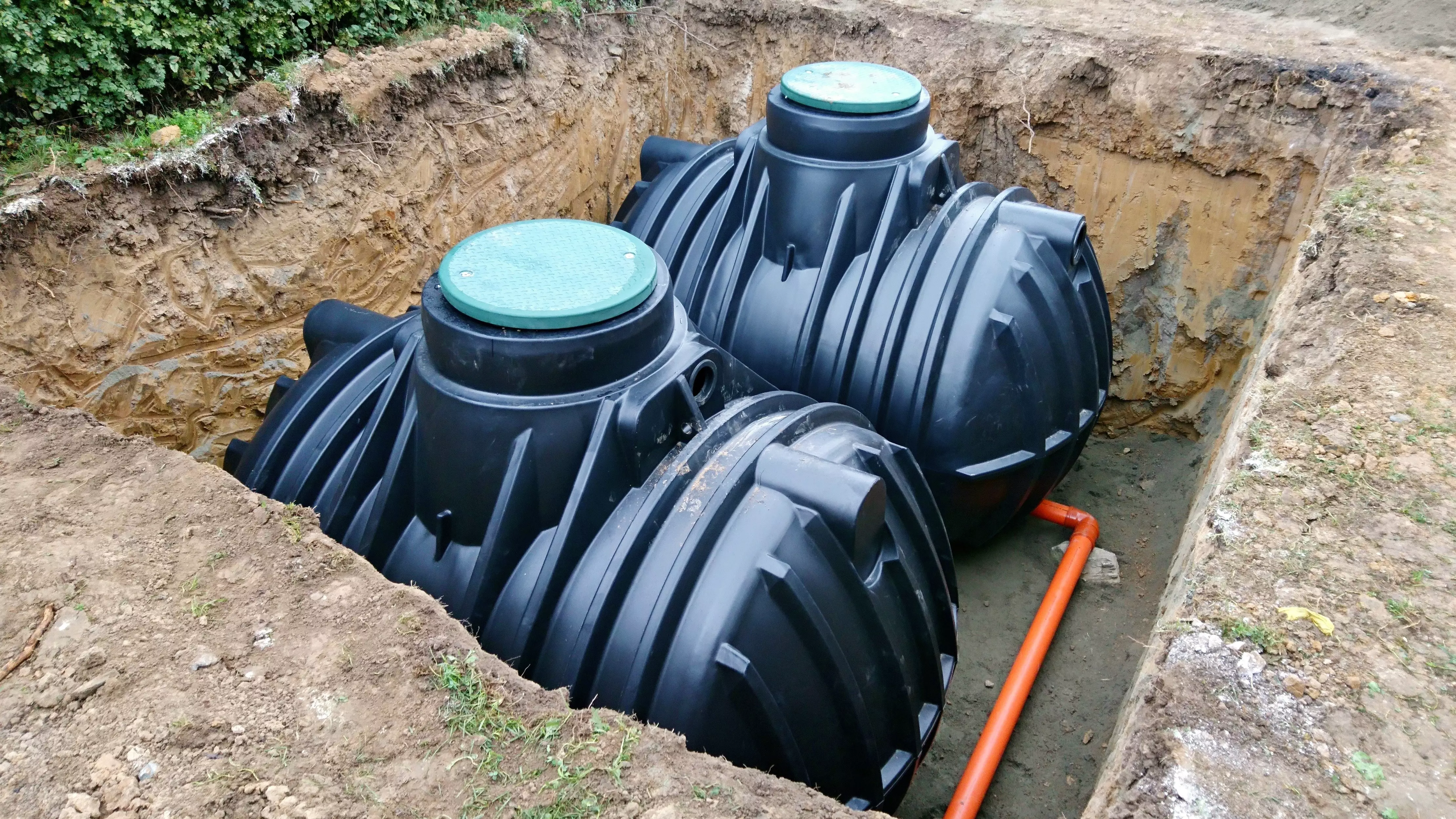
Tips for choosing the right cistern
To ensure that a rainwater system functions reliably in the long term, the size of the storage tank should always be adapted to individual requirements. High-quality materials ensure stability and durability so that the system can be used for decades. When choosing the technology, it is particularly important to pay attention to high-performance and low-maintenance filter and pump systems. An underground garden cistern not only offers a space-saving solution, but also impresses with its unobtrusive installation and protection from external influences.
In addition, modern control systems make everyday life easier by making operation intuitive and automatically monitoring operation. Professional advice ensures that all legal requirements are met and that the system is optimally tailored to your needs. This allows you to combine sustainability, convenience and cost-effectiveness in a solution that is both ecologically sound and financially advantageous.
Turning obligations into opportunities
Legal requirements relating to rainwater utilisation are more than just obligations; they promote the responsible use of resources and protect nature and infrastructure in the long term. Owners benefit not only from financial savings on wastewater and drinking water costs, but also from subsidy programmes that facilitate investments. A high-quality garden cistern offers additional security, longevity and increases the value of residential and commercial properties. With the right planning, an obligation becomes a sustainable investment, with WISY providing the ideal solution for every requirement with suitable systems.







